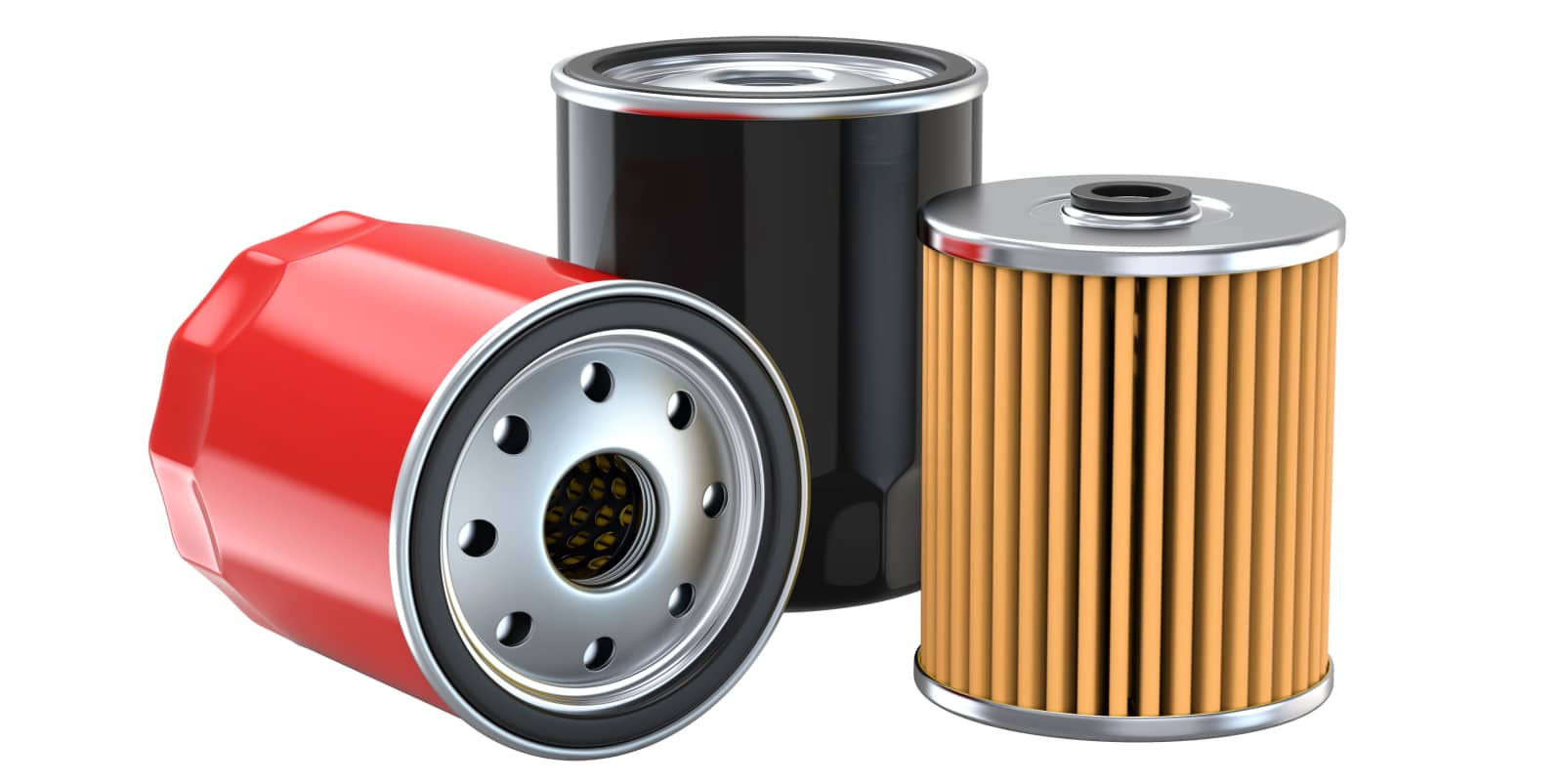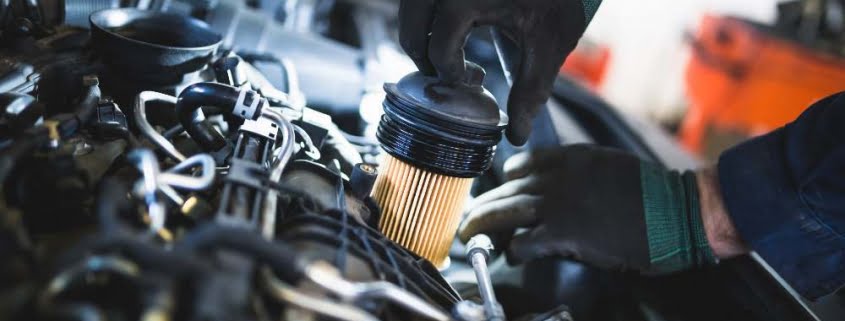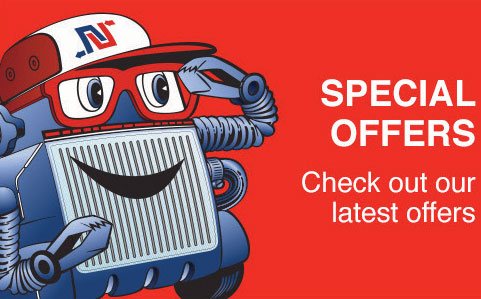What oil filter fits my car?
Choosing the right oil filter for your car is essential for maintaining engine health and performance. The oil filter plays a critical role in removing contaminants from engine oil, ensuring smooth operation and extending the life of your vehicle. With so many options available, finding the right filter can feel overwhelming.
In this blog, we’ll guide you through the basics of oil filter compatibility and help you understand what to look for when selecting the perfect fit for your car.
Having problems with the oil in your car? Our team can assist you with an oil filter replacement.
Noticed poor performance in your car lately? You might need a new oil filter
Your car relies on oil to be distributed throughout the engine to continue working smoothly. Your oil lubricates moving parts and helps prevent overheating. Keeping your oil clean (and filtered) is essential, as otherwise it can result in various problems, such as:
- Poor performance
- Dirty exhaust
- Low oil pressure
- Engine sputters
- Engine overheating
Prolonged circulation of dirty oil can also damage engine components, as small particles can be abrasive and cause premature wear to surfaces. This can lead to very expensive repairs!
How do I choose the correct oil filter to fit my car?

Factors that impact whether or not an oil filter will be right for your vehicle include:
- Size and capture efficiency
- Dirt holding capacity
- Pressure flow
- Design and fabrication integrity
The oil filter size will need to closely match the original factory-fitted unit. Choosing from a variety of aftermarket brands can be more tricky. This is because there isn’t much information available for consumers about what differentiates each filter brand. We’ll review some factors to consider, but it’s a good idea to also talk to a Natrad technician who can help choose an appropriate product to replace your oil filter in your vehicle. We also assist with the servicing and repairs of other oil-related components, such as oil filter caps.
How do oil filters work?
Knowing how the engine’s lubrication system works can help you choose the best oil filter. Oil is needed for the engine to run smoothly; it lubricates moving parts, preventing friction, wear, and damage from grinding surfaces.
Engine oil circulates the system via the oil pump. It’s pumped directly through the oil filter, which has a synthetic fibre mesh that allows the oil to pass through while blocking debris and contaminants, much like a sieve. Trapped debris and contaminants are prevented from circulating the engine and causing wear.
Factors to consider when choosing an oil filter
Filter size and efficiency
Filter size usually refers to micron size (a micron is 1 millionth of a metre), which is the unit of measurement used to measure particles travelling through the oil. As mentioned, small particles, such as metal debris, can come off your engine and wear your system down. To prevent wear and damage, the holes in your filter are a certain amount of microns large so that oil can pass but debris cannot.
Micron ratings and beta ratings are sometimes used to measure the effectiveness of a filtration system.
There are many factors involved in ensuring your filter size is neither too large nor too small. If your filter size is too large, debris inside the oil will pass through the filter and degrade the system. If your filter size is too small, the filter becomes easily blocked, and engine oil will flow too slowly, which will also cause damage.
Finding the right middle ground can be difficult. Most oil filter manufacturers do not supply comprehensive details regarding filter size to consumers, making finding the right oil filter for your car even harder. Therefore, it’s best to talk to your local Natrad mechanic and take their specialist advice.

Dirt-holding capacity
Dirt-holding capacity refers to the amount of dirt a filter can hold before it becomes clogged. It is essentially a measure of your oil filter’s lifespan.
Generally, most filters should be changed every 5-10 thousand kilometres, but this can vary. Some oil filters are designed to last longer, and you might need to change them more or less regularly depending on how frequently you drive and the conditions. It’s best to seek individual advice from your mechanic for guidance to avoid costly repairs.
If you’re experiencing some of these symptoms, it may be time to change your oil filter:
- Overheating: This might be because parts are heating up without the correct amount of lubrication.
- Oil leakage: Possibly due to a filter housing rupture, causing the oil to leak.
- Visual inspection of the dipstick reveals very thick, black oil. This could indicate that your oil filter is not filtering oil or that a filter element has ruptured.
Design and fabrication
As with any automotive part, the design and materials of your oil filter are important factors to consider. Better materials will result in better performance and lifespan. Common design materials used in oil filter construction are cellulose (wood pulp) and synthetic media.
Cellulose
Made of fibre, cellulose filters can absorb water (a good feature when filtering oil). However, they can have inconsistent porosity and are vulnerable to fatigue and chemical degradation. One advantage of using a cellulose filter is its low-cost construction.
Synthetic media
This media contains more pores per square inch and is usually consistent in size. This gives it a higher dirt-holding capacity and makes it more tolerant to stress. Synthetic media filters are also less sensitive to moisture and tend to have less contamination, allowing for higher flow rates.
Some high-performance filters are made of a composite of cellulose and synthetic media. The quality of this hybrid filter is higher than cellulose but lower than synthetic media, making it a good cost-effective middle ground.
Find the right oil filter for your vehicle with help from Natrad
While there are a lot of factors that make for a good oil filter design, information may be difficult for the general public to access. We’ve explained a few factors above, but realistically, you’ll need the correct size and good-quality construction for your vehicle.
By size, we refer to your oil filter’s dimensions checked against your vehicle’s requirements. As mentioned above, synthetic or composite materials are considered the best performers. They can be a little more expensive, but these filters are designed to serve your car more effectively and last longer – saving you from expensive engine damage repairs in the future.
At Natrad, we offer a wide range of high-quality oil filters for various vehicle applications. Our technicians can help you find oil filters to perfectly fit your vehicle and install it for you.
If your vehicle has oil-related problems, Natrad has the solution. Talk to our qualified team about your oil filter, and we’ll not only recommend the right replacement but can also install it in your vehicle for you. Contact us today for more information auto filters.









